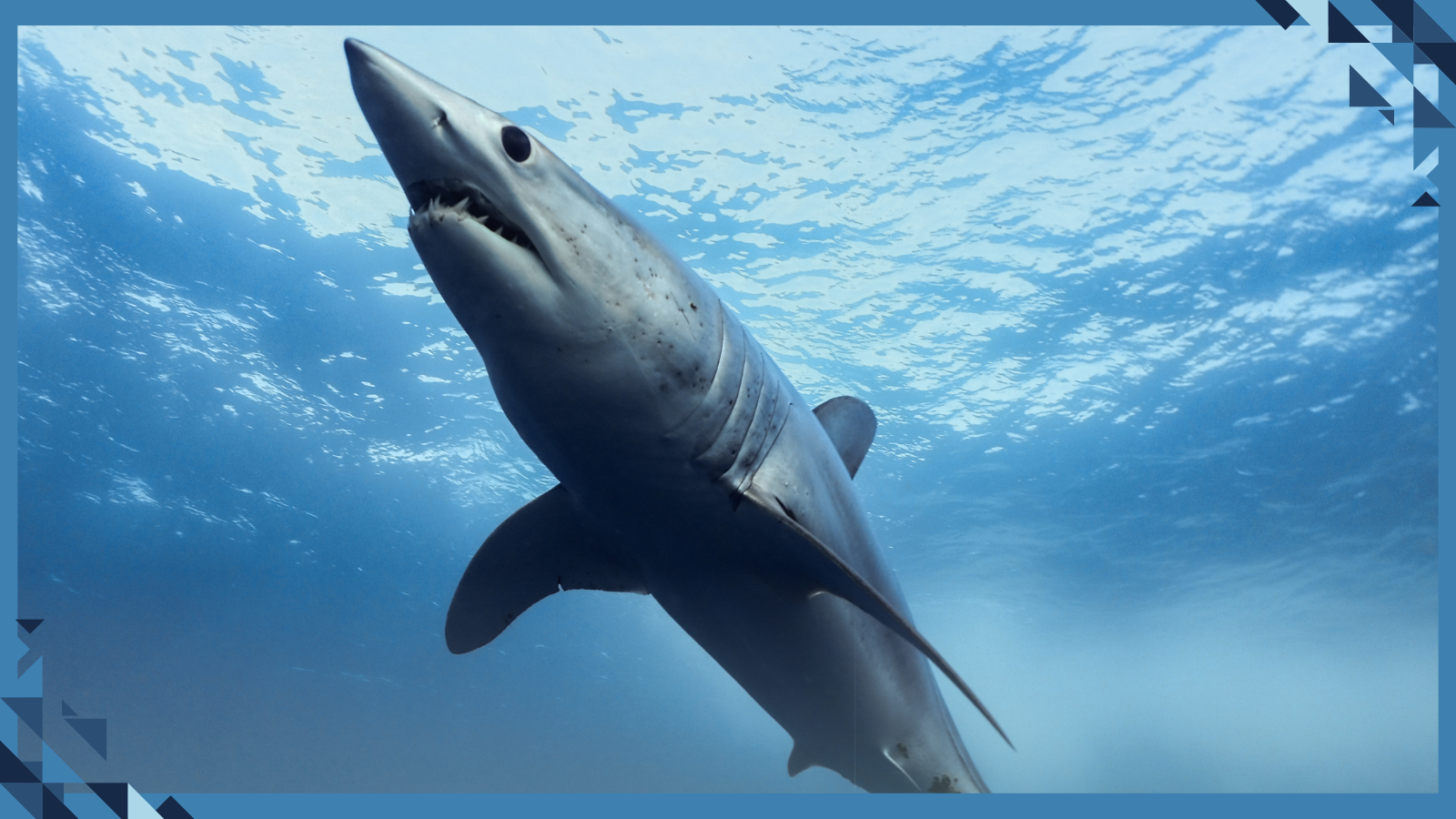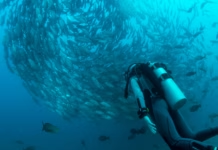Written by: Karla Mendes
Brazilian authorities announced the seizure of almost 29 tons of shark fins in June, exposing the extent of what they described as illegal fishing in the country. It was apparently the world’s largest confiscation in history: The largest previous seizure reportedly took place in Hong Kong in 2020, when authorities confiscated 28 tons of fins.
The seized fins were reportedly destined for illegal export to Asia, where they are used to make shark fin soup, a delicacy. They came from an estimated 10,000 blue (Prionace glauca) and anequim or shortfin mako (Isurus oxyrinchus) sharks, Brazil’s federal environmental agency IBAMA said in a news release. Shortfin mako sharks joined the country’s list of endangered species in May, whereas blue sharks are under consideration for inclusion. Internationally, shortfin makos are listed as endangered and blue sharks as near threatened by the IUCN.
“These vessels had fishing authorization for certain species, but used fishing gear specifically for targeted shark fishing, which is prohibited,” IBAMA’s director of environmental protection, Jair Schmitt, said in the statement. “[T]his illegal practice also causes the death of several seabirds, including endangered [species.] So the environmental damage is not only related to sharks, but also to marine fauna,” he added.
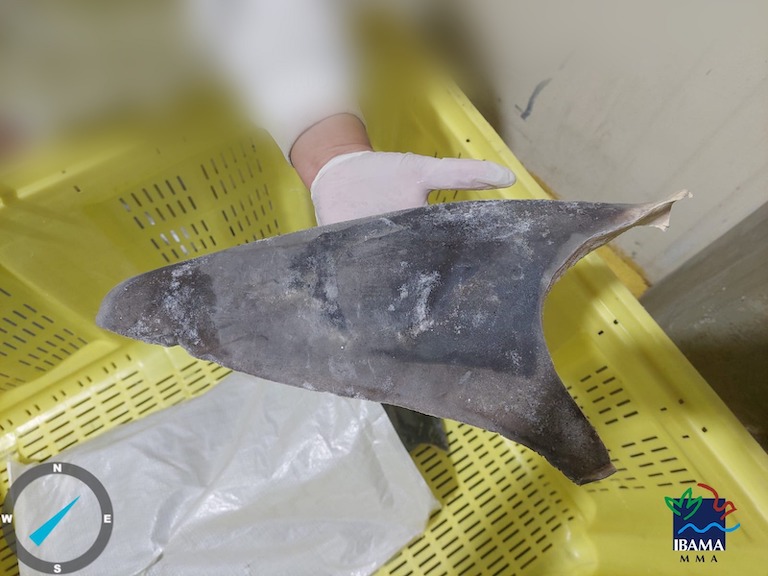
According to IBAMA, the large amount of fins in trade was the starting point of the investigation. “[W]e started to investigate and verify the origin, which companies were trading and where these companies were acquiring the boats. We did the entire reverse production chain, where it was possible to verify the irregularities,” Schmitt said. He noted that there is practically no consumption of shark fin in Brazil.
A single exporting company located in southern Santa Catarina state accounted for 98.5 percent of the seizure, or 27.6 tons of fins, according to IBAMA. Another company was caught trying to export 1.1 tons at São Paulo’s Guarulhos International Airport. The IBAMA statement said the agency is filing infraction notices and fines against these two companies, and other firms remain under investigation for illegal shark fishing related to the seizure and may yet be held accountable.
Although IBAMA did not officially disclose the names of the companies targeted in the operation, the name Kowalsky appeared in images shared by the agency. In a statement on Instagram, Comércio e Indústria de Pescados Kowalsky Ltda. denied the accusations, claiming the confiscated fins were not from endangered species but rather by-products of legally harvested sharks for which the vessels had fishing authorization. “Kowalsky guarantees that it has not received any specimen of anequim shark since May 2023, when it was included in the list of endangered species. It also guarantees that the blue shark received by the company is not included in the endangered species list,” the statement read.
Shark meat is widely sold and eaten in Brazil, where it is called cação, the Portuguese word for dogfish (family Squalidae), regardless of the species it comes from. Kowalsky said the seized stock of fins dated back as many as three years ago and that all the fish that enters its facilities undergoes a rigorous inspection by a trained technical team, including documentary analysis of the origin and provenance, as well as analysis of the quality and identity of the raw material.
Kowalsky said in the statement that IBAMA had described the seizure “in an absurd and decontextualized way,” adding that the company “will take the appropriate judicial measures for a fair retraction.”
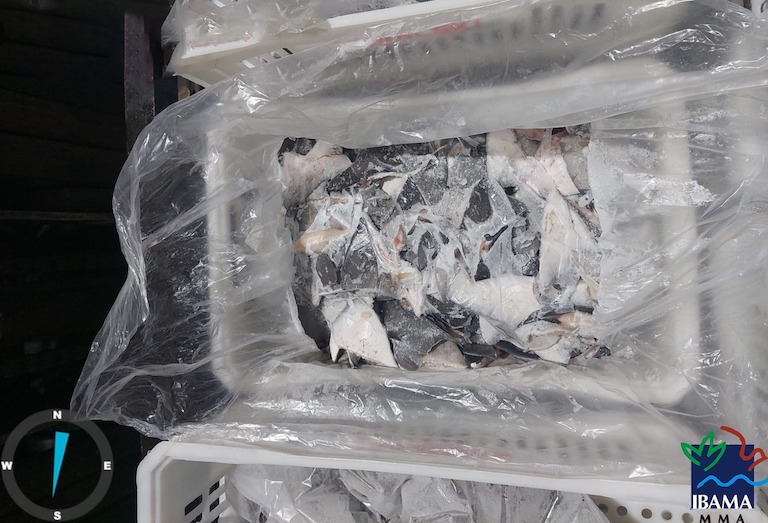
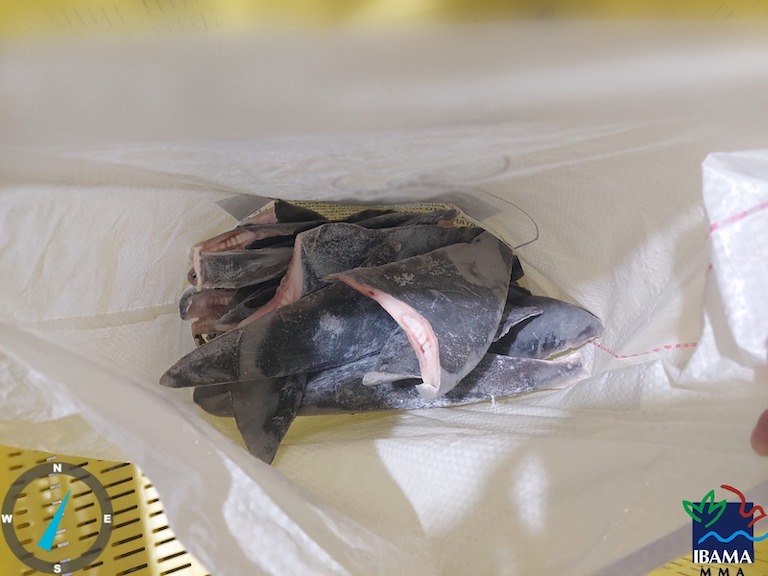
Marine conservation group Sea Shepherd Brazil urges the Brazilian government to ban the shark fin trade and shark meat imports, stating that Brazil consumes 45,000 tons of cação per year, of which around 20,000 tons are from blue shark. “Brazil is a key part of this great threat to sharks: today we are the largest consumer of shark meat in the world … we feed on different species of sharks and rays with the name of [cação],” the nonprofit said in a statement. It added that a study it commissioned in 2022 showed that more than half of the Brazilian population “do not even know that [cação] is a shark (or a ray), and it is quite common for those who do, to think that it is a single species, a ‘type of shark’ or a ‘coastal shark pup’, among other descriptions that come up in the research.”
Globally, sharks and rays, top predators that play an important ecological role, are under immense pressure. Since 1970, their populations have declined by 71 percent due to a dramatic increase in fishing, according to a 2021 study in Nature.
This article originally appeared on Mongabay

